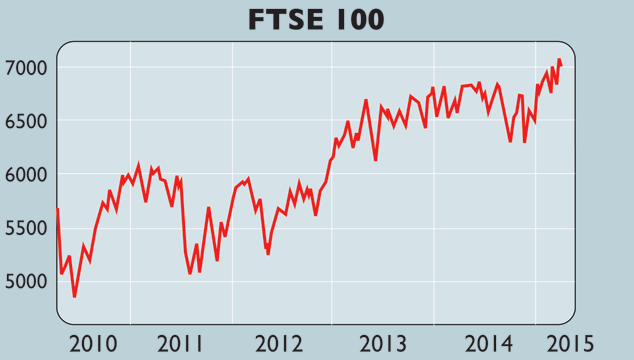Get the latest financial news, insights and expert analysis from our award-winning MoneyWeek team, to help you understand what really matters when it comes to your finances.
You are now subscribed
Your newsletter sign-up was successful
Want to add more newsletters?

Twice daily
MoneyWeek
Get the latest financial news, insights and expert analysis from our award-winning MoneyWeek team, to help you understand what really matters when it comes to your finances.

Four times a week
Look After My Bills
Sign up to our free money-saving newsletter, filled with the latest news and expert advice to help you find the best tips and deals for managing your bills. Start saving today!

Investors often assume that election campaigns are bad news for stocks. But an analysis of how the UK market has performed in the past six elections suggests this may be a myth, according to Chris Dillow in the FT. "On average, volatility during electoral campaigns is lower than it is normally."
Average returns were worse, but mostly because the FTSE 100 dropped 9% in the 2010 campaign. Other campaigns were unremarkable. That said, in most of these campaigns the "result was a foregone conclusion". The current election will be more uncertain.
Quite, says Neil Woodford, theUK's best-known fund manager, inThe Daily Telegraph. "I've navigated my way through numerous elections as an investor many of them, quite frankly, unimportant for stockmarkets and equity asset prices", but "I think now we're in a slightly different place".
MoneyWeek
Subscribe to MoneyWeek today and get your first six magazine issues absolutely FREE

Sign up to Money Morning
Don't miss the latest investment and personal finances news, market analysis, plus money-saving tips with our free twice-daily newsletter
Don't miss the latest investment and personal finances news, market analysis, plus money-saving tips with our free twice-daily newsletter
He anticipates a lot of instability and uncertainty even after polls close. "These are interesting times, but uncertain times, and you have to be wary as an investor in this market."
So far, there's little sign that most other investors feel the same way. The FTSE 100 remains near all-time highs, while UK government bond (gilt) yields are lower than they were at the start of the year. That seems "too complacent" given the risks, says investment management firm BlackRock. "A soothing outcome for markets is hard to imagine."
A Tory victory could pave the way for a British exit from the EU, damaging Britain's trade links and financialservices industry. A Labour triumph could see the implementation of policies perceived to be hostile to business. What's more, whoever wins, the resulting government is likely to be weak and struggle to pass the legislation needed to achieve its aims, making the outcome even less predictable.
That may be an exaggeration, says Dillow. "Neither main party can pursue grossly anti-business policies because to do so would cause companies to move overseas." So while the outlook may be tricky for UK equities, it shouldn't be so bad "that the FTSE 100 wouldn't rise if global equities generally do well".
Investors' phlegmatic attitude may be well-founded. But note that demand for new gilts issues has been weak while foreign holdings are dropping, says Swaha Pattanaik on breakingviews.com. It seems "those who have a choice" are giving the UK a miss until the result is clear.
Get the latest financial news, insights and expert analysis from our award-winning MoneyWeek team, to help you understand what really matters when it comes to your finances.
MoneyWeek is written by a team of experienced and award-winning journalists, plus expert columnists. As well as daily digital news and features, MoneyWeek also publishes a weekly magazine, covering investing and personal finance. From share tips, pensions, gold to practical investment tips - we provide a round-up to help you make money and keep it.
-
 Should you buy an active ETF?
Should you buy an active ETF?ETFs are often mischaracterised as passive products, but they can be a convenient way to add active management to your portfolio
-
 Power up your pension before 5 April – easy ways to save before the tax year end
Power up your pension before 5 April – easy ways to save before the tax year endWith the end of the tax year looming, pension savers currently have a window to review and maximise what’s going into their retirement funds – we look at how

